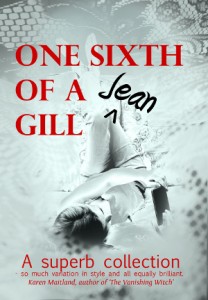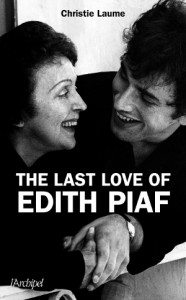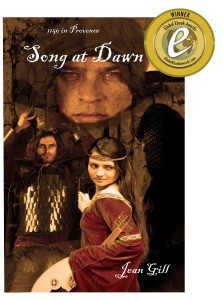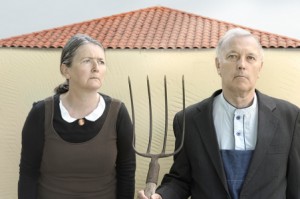Author Interview: Jean Gill
On breaking the rules in a wide variety of genres
Today, I’m delighted to welcome Jean Gill to my blog. Jean is a Welsh writer and photographer living in the south of France with a big white dog, a scruffy black dog, a Nikon D700 and a man. For many years, she taught English in Wales and was the first woman to be a secondary headteacher in Carmarthenshire. She is mother or stepmother to five children so life was hectic.
Her publications are varied, including prize-winning poetry and novels, military history, translated books on dog training, and a cookery book on goat cheese. With Scottish parents, an English birthplace and French residence, she can usually support the winning team on most sporting occasions.
Jean’s author photo is by Gary Martin.
On her writing
Q: If you were trying to describe your writing to someone who hasn’t read anything by you before, what would you say?
My writing has been breaking all the rules, in a wide variety of genres, for over thirty years. Tell me what you like to read and I’ll suggest which of my books might suit you. My seventeenth book One Sixth of a Gill gives a taste of my range through a collection of shorts, poetry and prose, illustrated by my photos and etchings.

One Sixth of a Gill will be available at the special price of 99c from 11th – 17th December.
Watch the trailer here!
Q: Do you find yourself returning to any recurring themes within your writing and, if so, are you any closer to finding an answer?
The dogs who walk beside us; the meaning of home; finding and losing family; healing; leadership; fulfilment, especially for women; life, death, passion and love – the usual! I don’t look for answers. I’m comfortable with questions and ambiguity, with the richness of life. However, writing about personal grief in one of the short pieces did help me come to terms with a recent loss. I usually keep some distance between my experience and any writing, even if I want it to sound personal, but this was raw and seems to have helped others, perhaps because of that.
Q: John Irving says that you can’t teach writing. You can only recognise what’s good and say ‘keep doing that.’ Do you think that’s true?
Saying ‘what’s good’ is teaching and it’s an under-rated skill. I was a teacher for many years and worked with some outstanding trainers so I can draw on that background when I run writers’ groups. Every writers’ group I’ve ever worked with starts off with criticism if the floor is open for comments. Few people are capable of giving specific praise and few writers are trained as teachers, let alone to teach writing.
When I first work with a group and someone shares his/her work, I always model specific praise by stating what I like in a piece (and it’s not always easy to find something!) and then I insist on any comment being positive. ‘What do you like in this piece of writing?’ is a question that should be asked more often. Constructive criticism is all useful too but identifying what is right is far more difficult.
I have become more open-minded and I try to recognise what the writer wants to achieve and not to work from a narrow pre-conception of what is ‘good’. ‘Writing’ is so much more open than ‘a novel’, everything from shopping lists to non-fiction books, and when I think of the classes I’ve taught, I know I learned as much as anyone else did. I’ve also run workshops for other writers to lead, and witnessed magic moments, some therapeutic and some literary.
So yes, in my experience, writing can be taught but no, the outcomes don’t necessarily fit any publishing boxes. Also, I am cynical about qualifications in Creative Writing a) because I don’t have one. Actually, that’s not true – I do! I’d forgotten that my English A level is ‘with Creative Writing’. Which means tiddly-squat. b) because such pseudo-qualifications put barriers up for ‘non-qualified writers’ and they encourage a parasitical networking culture in traditional publishing. The main benefit of said qualifications is that they provide a regular income for the writers who teach on them.

Q: Do any of your books have dedications? If so, to whom and (if appropriate) why?
I try to match the book and person to whom I dedicate it but I screwed up on One Sixth of a Gill. My local friend Lesley doesn’t like short stories and objects strongly to ereaders, so dislikes the jacket . She was pleased by the gesture though and has enjoyed the illustrations.
My worst error of judgement (or his) was when I dedicated my first novel to my husband and told him over a romantic meal out, expecting dewy-eyed gratitude. He said, ‘Well, that’s the convention, isn’t it?’ I was gutted. I’m not exactly conventional and I meant it as a gift. We made up but, of course, he will never have another dedication – and he doesn’t care.
On the ups and downs of being an indie author
Q: If you have experience of both traditional and indie publishing, how do the two compare?
I’ve just worked with a big publisher (Archipel) because I translated The Last Love of Edith Piaf by Christie Laume and the experience brought back all the highs and lows from my traditionally published past. It was great to hand over my typescript and have no responsibility for copy editing, jacket, publication, printing, marketing – and no costs. As the translator, I was paid an advance, paid for completion and wished the book luck as I kissed it goodbye. If I’d been the author, I’d have fretted over every aspect that wasn’t to my liking – the jacket, the advance marketing, the pricing, the targeting of readers.
I love the freedom of self-publishing, the control, the immediacy of publication and speed with which I can respond to the ever-changing market. I have a growing readership, despite writing in such a range of genres, and I do not miss all the rejections! If I’d found a publisher who liked everything I wrote or even wanted the next book, maybe I’d have felt differently but approaching publishers one book at a time wasted years.

Click here to sample and buy
On Writing Short Stories
Q: We are constantly being told that readers have decreasing attention spans. Does this mean that ‘shorts’ are receiving a surge in popularity?
Ask me again in a year! One Sixth of a Gill came out on 1st November so it’s early days but the reviews so far suggest that readers really like a book that they can ‘pick up, put down and enjoy in the middle’. It seems that readers do want a collection of shorts, even in a crazy variety of genres, spanning fiction and non-fiction, and they like the illustrations. The difficulty is that the online marketing is geared to a very narrow and stereotyped list of genres so which shelf to put it on can be a problem. A full collection like this can also get lost in the one-story shorts coming out to whet readers’ appetites for a series or ‘the next book’ from their favourite author.
Q: When writing short stories, do you stick to the rule that there must be a twist at the end?
Definitely not. Ironically, one of the few of my stories that does have a twist at the end suffered a review that revealed the ending! That gets me so cross when a reviewer spoils the story – at least in a collection of shorts there are other stories.
Q: Does the method of developing character differ? Do you stick to a small cast?
Yes. I have Aristotle’s unities in my head as a starting principle that works for short stories as well as plays, and the unity of action (one plot) lends itself to a small number of characters. My 12th century novels, in contrast, have epic cast lists and complex subplots. I enjoy complications.
Q: Have you ever started writing a short story and thought, this has the potential to be a novel?
No, never. My work usually simmers a while before getting out my head and there’s always a feeling as to what genre it should be. An idea is always attached to its form; ‘this should be a poem’. That’s why I write so many genres; to express the idea the way that feels right.
On Historical Fiction

Click here to sample and buy
Click here to watch the trailer
Q: Which brings me onto your current work in progress, the third book in your 12th century Troubadours series that started with Global Ebooks Best Historical Novel Song at Dawn. The 12th Century seems ripe for picking, but what is it that fascinates you about that era?
Song at Dawn started from a quote in a book on troubadour poetry: ‘Rumour says that there was a female troubadour with a large white dog roaming in the south of France’. I’m a writer living in the south of France with my sixth Pyrenean mountain dog so this was a story that I had to write.
My early research spanned four hundred years and I soon realised I had to narrow the focus! Then I discovered Ermengarde, the Viscomtesse of Narbonne. How had I not heard of her before? An amazing woman whose sophisticated court was a magnet for the best troubadours of Occiania. I tentatively picked 1150 in Narbonne and then the story started falling into place around that date. The moment I read that a Viking Prince from the Orkneys visited Narbonne at this time and wrote a saga for Ermengarde, I knew that my period had found me.
The more I read of 12th century Occitania, the more I’m fascinated by it: by women’s freedom and varied professional roles from doctors to rulers; by the contact between Christians, Jews and Muslims in both peaceful trade and bloody Crusade; and by the unforgivable behaviour of the Christian Church in stamping out progress. When I read how the Church prevented paper-making for two hundred years I was so angry. Books and progress – intertwined through the ages!
Q: How important is historical accuracy when writing fiction and how faithfully does your novel stick to the written record?
I try to be as accurate as possible and I research for at least a year before starting one of my 12th century novels. I never change facts, although of course I might make mistakes. I’ve been surprised at how often historians trust secondary evidence and repeat errors so if I’ve made some, I’m not the first. In Let’s argue about history (One Sixth of a Gill) I discuss some of the disagreements I have with received views of my period. I get very involved in the politics. Weaving the lives of my imagined characters through real historical events and people is complicated but satisfying. It pleases me to have solved some real historical mysteries via my books, such why the siege of Damascus failed in the Second Crusade.

On reading
Q: Which book last made you cry?
The Lives of Lee Miller, which I finished yesterday. I find it moving that Lee’s son wrote this inspirational biography and that, thanks to his wife, he put his horrible childhood relationship behind him to reach an understanding with his talented mother. Love and redemption. A real reversal of the mother-in-law/daughter-in-law stereotype.
(Aside from Jane: My historical novel I Stopped Time is very loosely based on Anthony Penrose’s discovery of his mother’s body of work after she died. Having had a difficult experience with his mother, Lee, he said that he ‘felt cheated out of knowing someone rather extraordinary.’)
Q: Are there any books that you find yourself returning to time and time again?
The Lord of the Rings I need to bear that burden again one more time or evil will rule.
Q You interview other authors on your blog. What do you aim for when in the interviewer’s seat?
Whatever I’m doing, I always want the same thing; magic to happen. If there’s a moment someone opens up about something he/she cares about, then the interview has ‘worked’. I find out about my guest beforehand so I can prepare appropriate questions and I’m always genuinely interested in the answers. And it’s my job to catch the magic.
Want to know more?
Buy books
Visit Jean’s Amazon page, read her blog, find her on Facebook, follow her on Twitter, or browse though her photographs.



One comment
Thanks for putting me in the hotseat Jane – I’m always surprised at what I find out about myself answering good questions!